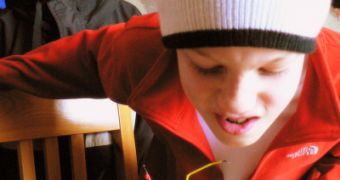Raising a child is no easy task, and this is something that every parent will tell you. Getting them to have confidence in themselves is very hard, and some parents never succeed in doing so. But a recent study suggests that children who do have a high degree of self-esteem are very likely to manifest aggressively, if they are ashamed in a group, as for instance in front of a classroom. This is especially true for early teenagers, a University of Michigan Institute for Social Research (ISR) paper, published in the December issue of the journal Child Development, shows.
"Young teens with low self-esteem apparently don't feel the need to protect their punctured egos. It could be that narcissistic kids with high self-esteem are more vulnerable to shameful events than are kids with low self-esteem. Or, they may differ in the way they deal with those events," says study co-author Brad J. Bushman, a UM psychologist, who worked with researchers from VU University and Utrecht University in The Netherlands.
"Narcissists seem highly motivated to create and maintain a grandiose view of self. They tend to interpret social situations in terms of how they reflect on the self, and they engage in self-regulatory strategies to protect self-esteem when they need to. As shameful situations constitute a threat to grandiosity, narcissistic shame-induced aggression can likely be viewed as defensive effort to maintain self-worth," the paper says.
For the study, the researchers analyzed the behavior of 163 children in Michigan middle schools, aged 10 to 13, and asked them to fill out questionnaires, in which the experts assessed their degree of self-confidence and narcissism. Those who were found to have a high degree of these manifestations were asked to battle alleged opponents from other schools, but, in reality, they battled a computer.
When they were told that they were defeated, and that the results had been posted on a website, for everyone to see, those who were marked as "narcissistic" were far more likely to become aggressive and violent than the other ones. The researchers conclude that parents and teachers should avoid shaming this type of children in front of others, as this could set the bases for unwanted behavioral patterns in the future.

 14 DAY TRIAL //
14 DAY TRIAL //